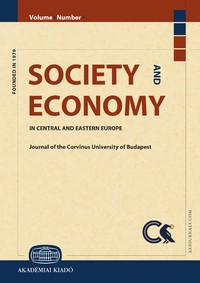Adverse consequences of economic policy in combating global climate change in the Czech Republic
Adverse consequences of economic policy in combating global climate change in the Czech Republic
Author(s): Zdeněk Pikhart, Šárka Pikhartová, Pavel ProcházkaSubject(s): Socio-Economic Research
Published by: Akadémiai Kiadó
Keywords: Kuznets curve; global climate change; input-output analysis; environmental policy
Summary/Abstract: The main aim of the article is to identify unintended consequences of economic policies to combat climate change, in the short and long run, using the example of the Czech economy. The short term impacts are assessed by world input-output analysis in order to capture direct and indirect channels affecting the Czech automotive industry. Optimistic, realistic and pessimistic scenarios of decrease in demand for cars due to the imposition of environmental taxes in the European Union and the rest of the world are presented. The results show adverse impacts on Czech gross domestic product from 1.6 to 4.9 percentage points. The economy is expected to change its structure and reallocate factors of production to an alternative use, but there is a risk of suboptimal allocation, which might reveal losses from less efficient allocation of labor and capital. Therefore, the analysis of the relationship between economic welfare and the quality of the environment is conducted. Data on the Czech economy confirm the hypothesis of an environmental Kuznets curve and point to unintended consequences of overly ambitious policies to mitigate global climate change. If economic welfare excessively declines, there would be a significant risk of undermining people's will to invest into environmental protection.
Journal: Society and Economy. In Central and Eastern Europe ǀ Journal of the Corvinus University of Budapest
- Issue Year: 43/2021
- Issue No: 2
- Page Range: 147-164
- Page Count: 18
- Language: English

